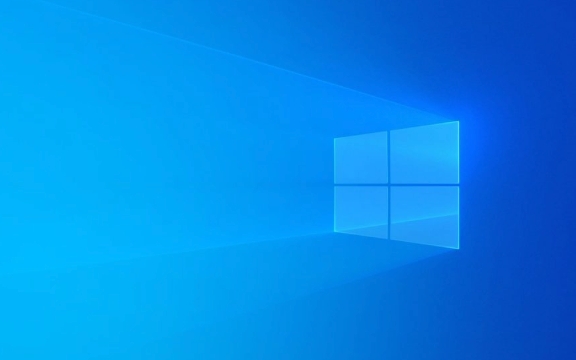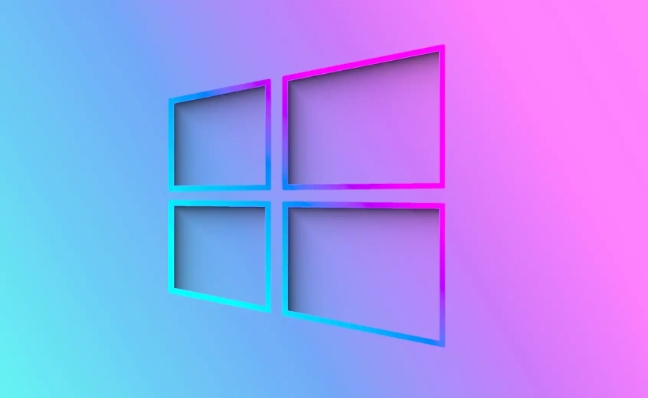First, confirm the update is actually stuck by checking for progress or disk activity and waiting 2–4 hours before acting. 2. If no activity, safely force restart by holding the power button for 10 seconds, waiting 30 seconds, then rebooting to let Windows recover. 3. Run the Windows Update Troubleshooter via Settings > Update & Security > Troubleshoot to fix common issues. 4. Clear the SoftwareDistribution folder by stopping the Windows Update service, deleting the folder’s contents, then restarting the service. 5. Use Microsoft’s Update Assistant or reset Windows Update components using Command Prompt commands to stop services, rename folders, and restart services. 6. Check for disk errors with chkdsk /f /r, update drivers, and ensure 20–30 GB of free space. 7. As a last resort, perform a repair install using a Windows 10 USB or reset the PC through Recovery settings while keeping files. Most stuck updates can be resolved with these steps without data loss, and avoiding repeated force restarts prevents further issues.

If your Windows 10 update is stuck at a certain percentage—whether it's 10%, 50%, 80%, or any other number—it can be frustrating, especially if it's been that way for hours. While some updates take longer depending on your hardware and internet speed, a truly "stuck" update usually means something has gone wrong. Here’s what you can do to resolve it.

1. First, Confirm It’s Actually Stuck
Before taking action, make sure the update isn’t just slow:
- Check if the progress bar is moving slightly or if the percentage changes occasionally.
- Listen for disk activity—if the hard drive or SSD is still working (fan running, disk light blinking), the system may still be processing.
- Some updates take several hours, especially after major feature upgrades.
Wait at least 2–4 hours on a typical system before assuming it's frozen.

2. Try a Forced Restart (Safely)
If there’s no activity for a long time:
- Hold down the power button for 10 seconds to force shut down.
- Wait 30 seconds, then turn the PC back on.
- Windows should detect an incomplete update and attempt to recover.
?? Note: Don’t force restart too early—doing it mid-file-copy can cause corruption.

After rebooting:
- Windows may resume the update.
- Or it might roll back the update and notify you of a failure.
3. Run Windows Update Troubleshooter
If the system boots normally but the update remains stuck:
- Go to Settings > Update & Security > Troubleshoot.
- Select Additional troubleshooters.
- Run the Windows Update troubleshooter.
- Follow the prompts and apply any recommended fixes.
This built-in tool can fix common issues like corrupted update caches or service errors.
4. Clear the SoftwareDistribution Folder
Corrupted download files can cause updates to hang:
- Press Win R, type
services.msc, and press Enter. - Find Windows Update, right-click it, and choose Stop.
- Open File Explorer and go to:
C:\Windows\SoftwareDistribution
- Delete all contents inside this folder (you may need admin rights).
- Go back to services.msc, restart the Windows Update service.
Now try checking for updates again—Windows will re-download the update files.
5. Use the Update Assistant or Reset Components
If the above doesn’t work:
Option A: Use Microsoft’s Update Assistant
- Download the Windows 10 Update Assistant from Microsoft’s official site.
- It bypasses the regular update process and forces a clean update.
Option B: Reset Windows Update components (Advanced)
Open Command Prompt as Administrator and run these commands one by one:
net stop wuauserv net stop cryptSvc net stop bits net stop msiserver ren C:\Windows\SoftwareDistribution SoftwareDistribution.old ren C:\Windows\System32\catroot2 catroot2.old net start wuauserv net start cryptSvc net start bits net start msiserver
This resets the update components and clears the cache.
6. Check for Disk or Driver Issues
A failing hard drive or incompatible driver can halt updates:
- Run CHKDSK to check disk health:
chkdsk /f /r
(Requires restart.)
- Update drivers (especially storage and chipset) from your PC manufacturer’s website.
- Ensure you have at least 20–30 GB of free space—updates need room to unpack.
- Use a Windows 10 installation USB to perform a repair install (keeps your files and apps).
- Or go to Settings > Update & Security > Recovery > Reset this PC (choose "Keep my files").
7. Last Resort: Repair Install or Reset
If nothing works:
This reinstalls Windows cleanly without losing personal data.
Basically, a stuck update is usually fixable with a restart, cache reset, or using Microsoft’s tools. The key is not to panic and avoid multiple force restarts, which can make things worse. Most issues resolve with the steps above.
The above is the detailed content of Windows 10 update stuck at a certain percentage. For more information, please follow other related articles on the PHP Chinese website!

Hot AI Tools

Undress AI Tool
Undress images for free

Undresser.AI Undress
AI-powered app for creating realistic nude photos

AI Clothes Remover
Online AI tool for removing clothes from photos.

Clothoff.io
AI clothes remover

Video Face Swap
Swap faces in any video effortlessly with our completely free AI face swap tool!

Hot Article

Hot Tools

Notepad++7.3.1
Easy-to-use and free code editor

SublimeText3 Chinese version
Chinese version, very easy to use

Zend Studio 13.0.1
Powerful PHP integrated development environment

Dreamweaver CS6
Visual web development tools

SublimeText3 Mac version
God-level code editing software (SublimeText3)
 How to Change Font Color on Desktop Icons (Windows 11)
Jul 07, 2025 pm 12:07 PM
How to Change Font Color on Desktop Icons (Windows 11)
Jul 07, 2025 pm 12:07 PM
If you're having trouble reading your desktop icons' text or simply want to personalize your desktop look, you may be looking for a way to change the font color on desktop icons in Windows 11. Unfortunately, Windows 11 doesn't offer an easy built-in
 Fixed Windows 11 Google Chrome not opening
Jul 08, 2025 pm 02:36 PM
Fixed Windows 11 Google Chrome not opening
Jul 08, 2025 pm 02:36 PM
Fixed Windows 11 Google Chrome not opening Google Chrome is the most popular browser right now, but even it sometimes requires help to open on Windows. Then follow the on-screen instructions to complete the process. After completing the above steps, launch Google Chrome again to see if it works properly now. 5. Delete Chrome User Profile If you are still having problems, it may be time to delete Chrome User Profile. This will delete all your personal information, so be sure to back up all relevant data. Typically, you delete the Chrome user profile through the browser itself. But given that you can't open it, here's another way: Turn on Windo
 How to fix second monitor not detected in Windows?
Jul 12, 2025 am 02:27 AM
How to fix second monitor not detected in Windows?
Jul 12, 2025 am 02:27 AM
When Windows cannot detect a second monitor, first check whether the physical connection is normal, including power supply, cable plug-in and interface compatibility, and try to replace the cable or adapter; secondly, update or reinstall the graphics card driver through the Device Manager, and roll back the driver version if necessary; then manually click "Detection" in the display settings to identify the monitor to confirm whether it is correctly identified by the system; finally check whether the monitor input source is switched to the corresponding interface, and confirm whether the graphics card output port connected to the cable is correct. Following the above steps to check in turn, most dual-screen recognition problems can usually be solved.
 Want to Build an Everyday Work Desktop? Get a Mini PC Instead
Jul 08, 2025 am 06:03 AM
Want to Build an Everyday Work Desktop? Get a Mini PC Instead
Jul 08, 2025 am 06:03 AM
Mini PCs have undergone
 Fixed the failure to upload files in Windows Google Chrome
Jul 08, 2025 pm 02:33 PM
Fixed the failure to upload files in Windows Google Chrome
Jul 08, 2025 pm 02:33 PM
Have problems uploading files in Google Chrome? This may be annoying, right? Whether you are attaching documents to emails, sharing images on social media, or submitting important files for work or school, a smooth file upload process is crucial. So, it can be frustrating if your file uploads continue to fail in Chrome on Windows PC. If you're not ready to give up your favorite browser, here are some tips for fixes that can't upload files on Windows Google Chrome 1. Start with Universal Repair Before we learn about any advanced troubleshooting tips, it's best to try some of the basic solutions mentioned below. Troubleshooting Internet connection issues: Internet connection
 How to clear the print queue in Windows?
Jul 11, 2025 am 02:19 AM
How to clear the print queue in Windows?
Jul 11, 2025 am 02:19 AM
When encountering the problem of printing task stuck, clearing the print queue and restarting the PrintSpooler service is an effective solution. First, open the "Device and Printer" interface to find the corresponding printer, right-click the task and select "Cancel" to clear a single task, or click "Cancel all documents" to clear the queue at one time; if the queue is inaccessible, press Win R to enter services.msc to open the service list, find "PrintSpooler" and stop it before starting the service. If necessary, you can manually delete the residual files under the C:\Windows\System32\spool\PRINTERS path to completely solve the problem.
 How to run Command Prompt as an administrator in Windows 10?
Jul 05, 2025 am 02:31 AM
How to run Command Prompt as an administrator in Windows 10?
Jul 05, 2025 am 02:31 AM
To run command prompts as administrator, the most direct way is to search through the Start menu and right-click "Run as administrator"; secondly, use the Win X shortcut menu to select "Command Prompt (Administrator)" or "Windows Terminal (Administrator)"; you can also open the run window through Win R and enter cmd and press Ctrl Shift Enter to force running as administrator; in addition, you can set shortcut properties to achieve automatic running as administrator. All the above methods require administrator permission and confirmation through UAC. Pay attention to security risks during operation.








